The Life and Works of Professor Mohammad Abdul Jabbar, Chapter Three.
Mohammad Abdul Jabbar MSc (Hons) – Further Education & World War II
As the young Professor completed his Masters degree, thoughts turned to where he would go next. At the time, Cambridge University had a highly-acclaimed Tripos degree course which some of the young Professor's elders perceived to be a natural step forwards.
Professor Levi, however, did not agree. He had seen the potential that the young Professor had; since the Tripos degree was just an Honours degree, the next step would be to pursue a DSc (Doctorate in Science). The young Professor had an enormous amount of respect and a lot of faith in Professor Levi's advice, so, with his blessings, the young Professor enrolled on a DSc programme at Cambridge University, and as air travel was not as accessible as it is in modern times, he boarded a passenger ship bound for London.
He embarked on his journey on 1 September 1939. His scholarship status followed him too, and he would be joining Cambridge University on a full scholarship.
The effects of war can trickle down to individuals and areas that one would never expect. Two days after the young Professor set sail for the United Kingdom, on 3 September 1939, Britain had entered World War II by invading then-Nazi Germany. The ship that the young Professor was travelling on sailed under a British flag, and given the instability at the time, the Captain of the ship elected to avoid the Suez Canal (in Egypt), to reduce the risk of being attacked by German ships, U-boats, or similar. Instead, the ship was navigated around Africa, adding an additional 5,100 miles (6,200 km) and an extra 45 days to the journey time.
Ships in 1939 did not have the luxuries afforded to modern cruise ships, let alone the restrictions that war brings. The young Professor's journey was not only 45 days longer than expected, but due to the limited supplies on board for such an extended journey, the Captain had to ration the meagre supplies that remained. By the time the young Professor reached the United Kingdom, the ship had depleted its food supplies and had been suffering a severe water shortage. Those on board were limited to one single glass of potable water per day.
This did not stop the young Professor. After disembarking the ship, he eventually confirmed his enrollment to Cambridge University, initially for an MSc degree but with the intention to elevate to a DSc degree as soon as possible, given the global war that was prevalent at the time.
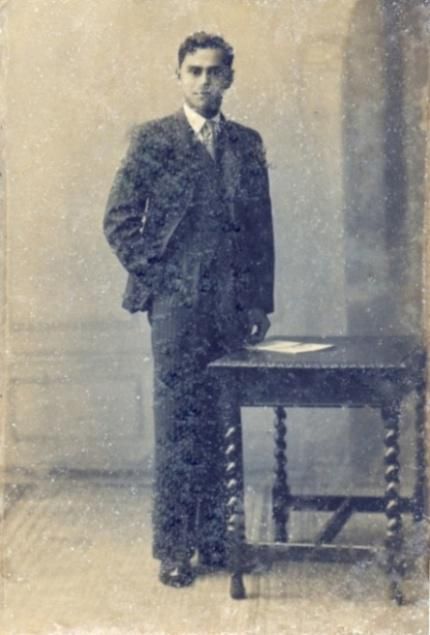
Mohammad Abdul Jabbar MSc (Hons), in his early days at Cambridge University.
Whilst the young Professor was trying to settle into his studies, having left his loved ones behind, World War II escalated. The young Professor continued to do his best as a student, eventually getting accepted onto the DSc programme. His new supervisor, who's name is also sadly lost to the ages, pushed for the University to continue the young Professor's education – however, sadly the supervisor was conscripted to the British Army. Furthermore, the British government decided that under wartime protocols, any non-permanent foreigners could act as spies for British military operations, so they elected to remove all of these foreign men and women and send the back to their originating countries. The young Professor was part of this.
Professor Levi had remained in Kolkata and when the young Professor returned, he was welcomed back to the university to continue his research, working under Professor Levi. The young Professor also started part-time lecturing at Kolkata University, continuing his studies and lecturing until 1943. During this time, he and Professor Levi attended various mathematical seminars across India, and the two even published some academic papers together.
Whether or not it was part of the global war, the Hindu-Muslim conflict was also reaching it's peak in 1943. At the same time, Professor Levi's older sister, Franziska Fitting (née Levi) was sadly killed during the Holocaust. Professor Levi took a break from teaching at this time, vacating his lecturer role. Due to the Hindu-Muslim conflict, the young Professor was not allowed to fill the shoes of his mentor and lecturer at the university.
The young Professor decided to take matters into his own hands, and moved to Chittagong College as a lecturer. He eventually returned to the Presidency College as a lecturer, transferring over. Sadly Professor Levi, whilst remaining in British India for a few years, was no longer part of the story of Professor Mohammad Abdul Jabbar.
Professor Levi was a mentor, a friend, an inspiration to the young Professor. Whilst he is no longer part of the story, Professor Levi's grandchildren continue to be active in politics and (some of) the subjects of the man that Professor Mohammad Abdul Jabbar respected so highly.
The Partition of British India, 1947
The partition of British India started in 1947. At this time, the young Professor was teaching in the Presidency College and opted to reside in the newly-formed Pakistan. He left Kolkata, to relocate to East Pakistan, joining Rajshahi College as the Head of Mathematics. The College has remained as a higher educational institute to this day.
The library of Rajshahi College had a number of books on astronomy. One of these books, Nakshatra-Chena (নক্ষত্র-চেনা / Knowing Stars) by Jagdvananda Roy, had a profound effect on the young Professor. He began to recognise stars and constellations, with the help of the information in Jagdvanadnda Roy's book. It was indeed this book that shifted the young Professor's interest towards the sky, henceforth into astronomy.
Rajshahi College had a small telescope (and in current times, a larger satellite/radar receiver) within the campus. Students of the college were shown the orbits and movements of planets and stars in the sky, via the telescope. The young Professor, as always an author, decided to start studying and writing articles about various astronomical observations. After the partition of British India, he wrote his works in Bengali. This was well-received by the local East Pakistan journalistic community, where monthly/weekly newspapers such as Mohammadi (মোহাম্মদী), Swagat (স্বাগত), and Pathshala (পাঠশালা) published his articles.
The young Professor's elder brother, Mr. Mohammad Akbar Ali, encouraged him to continue writing. The young Professor started writing a monthly article called Sky for this Month (এই মাশের আকাশ) in a well-respected Bengali science magazine called Imroz (ইমরোজ). This magazine was published monthly from Dhaka, and the chief editor was Mr. Mohammad Akbar Ali.
In 1948, the young Professor joined the Mathematics Department of the-then Ahsanullah Engineering College (now known as BUET), also as the Head of Mathematics. He started living in the college quarters assigned to him, (or “halls” as we now know them), and would later move from these halls to his brother M Akbar Ali’s house in Farashganj. The young Professor would later move to Azimpur Colony, which had been redeveloped as a newly-built government complex for professionals, and would eventually move to a house very famous within the family, which will be covered in the next chapter.
Whilst at BUET and from 1950, the young Professor started to write a column for the Pakistan Observer. This column was published on the 1st day of every month, including pictorial diagrams showing the positions of the stars in the sky, along with a discussion about the phases of the moon, as well as when the Eid (crescent) moon could be seen.
Mohammad Abdul Jabbar MSc (Hons) – Early Personal Life
Before the young Professor moved to the UK to continue his studies, he married Mrs. Noor Jahan Begum on 8 June 1939. She was a final year student at
Sakhawat Memorial Girls School in Kolkata, and was the eldest daughter of the renowned scholar Mohammad Barkatullah. Mrs. Noor Jahan Begum continued with her own studies whilst the young Professor attended Cambridge University. They would eventually have 7 children, consisting of an eldest daughter, five sons, and a youngest daughter.
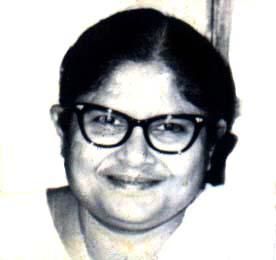
Mrs. Noor Jahan Begum, wife of Professor Mohammad Abdul Jabbar
Mrs. Noor Jahan Begum's father, Mr. Mohammad Barkatullah, was born on 2 March 1898, in the Ghorashal village within what was then the Pabna (now Sirajgonj) district. Mr. Mohammad Barkatullah, in his adult life, worked as the deputy secretary of the East Pakistan educational department. He wrote a number of books himself, which became part of the Bangladesh curricular syllabus in later years – for secondary, higher, and degree-level qualifications.
Mr. Barkatullah passed away on 2 November 1974, but his legacy remained through his books, which continued to be used in school work. The young Professor certainly had someone to challenge and look up to, as a fellow author.
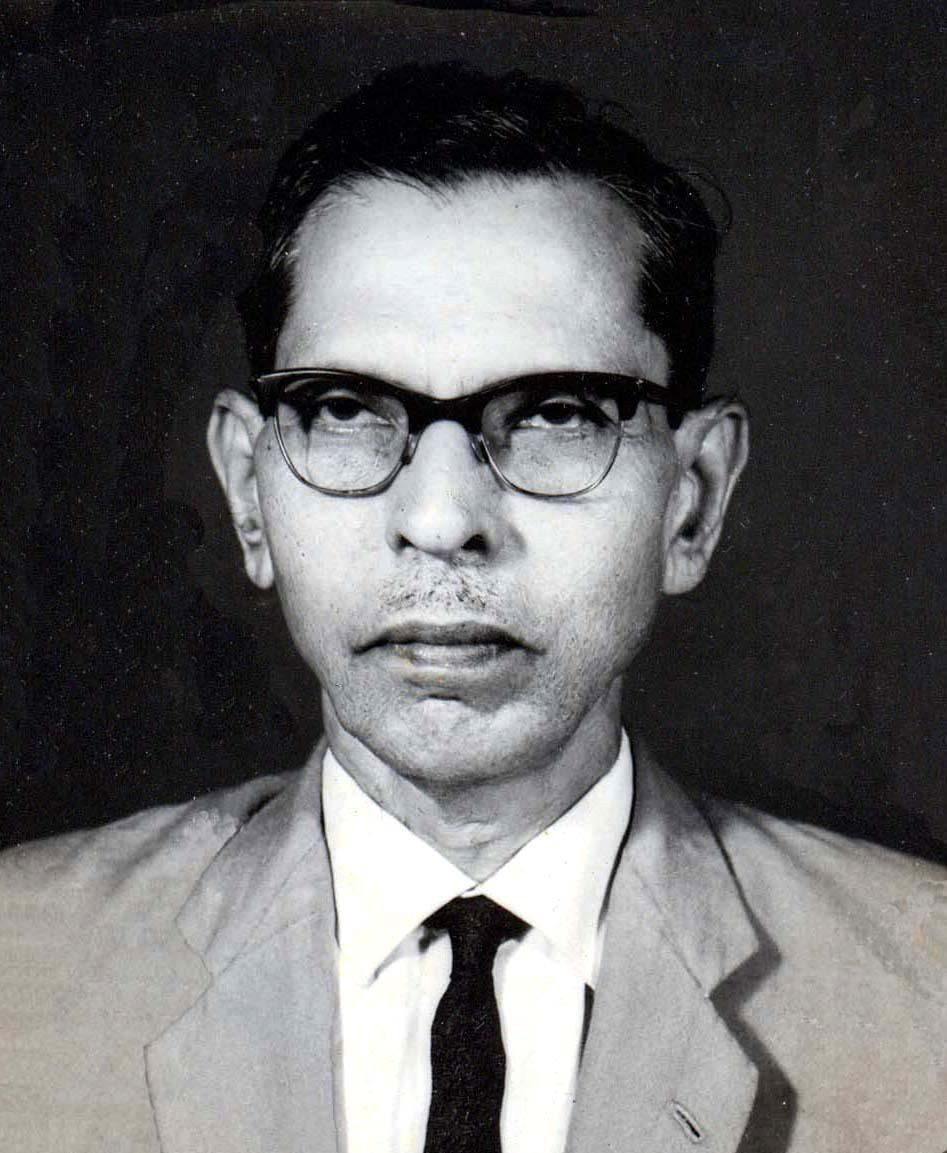
Mr. Mohammad Barkatullah, father of Mrs. Noor Jahan Begum
On a related note, the young Professor, always respectful of knowledge and learning, instilled these principles of a strong education to his children. He himself used to sit and teach with his children every day. His brother-in-law, Mr. Mohammad Asadullah, wrote the following in an article:
From their early years, Professor Jabbar used sit with his children with their study every evening. Dulabhai (my brother-in-law) used to sit on one side and the children on the other side. At that time his face was quite serious. If I happen to visit my sister at that time and started to make chit chat with him, I would find him quite distant. I remember, Apa (my elder sister) used to joke, a curfew is imposed there during the study time. Not only you, even I am not allowed to go there during this study time. No wonder all his children are highly educated and established in life because of his strict but structured guidance.
(Three flowers in one stalk - Muhammad Asdullah, Page-43, ‘Mahakash Barta’, Second Year, Eleventh Issue, November, 1993)
The young Professor, whilst educating his children, continued his writing by focusing on textbooks. From the early 1950s, he started to write English-language textbooks for Intermediate-level Mathematics. Over the years, his most notable textbooks were those focusing on Intermediate-level Statistics and Intermediate-level Dynamics.
As time went on, these books became considered de facto textbooks for College-level eduacation in the entirety of what was then Pakistan. His knowledge and writing were considered so important that at the time, there was not a single College-level student in the old country studying Science or Mathematics, who would not have read one of the young Professor's books.
Shelter & Mr. Munshi Miazan Mallik's Further Endeavours
Between 1948 and the late 1950s, the young Professor moved from the Ahsanullah Engineering College campus to the ancestral family home in Motijheel. The house was called “Shelter”, a name that is known even by grandchildren and great-grandchildren to this day.
Shelter was situated between Notre Dame College and Shapla Square (the latter being well-recognised for the large flower in the centre of its architecture, which was Motijheel roundabout). The three brothers all moved into the property and remained there for many years, along with their parents.
By the end of 1950, astronomy had faded from the school curriculum. Whatever was left in the syllabus was eventually dropped from the Dhaka University education topics. Professor Mohammad Abdul Jabbar decided to forego this, and continued to pursue the subject by by writing articles in newspapers and writing several very informative books on astronomy, in the Bengali language.
As a result of the space race between the United States and the former Soviet Union, interest in astronomy in Bangladesh continued to increase, particularly amongst younger people. This was exacerbated by the placing of Sputnik 1 in space by the former Soviet Union in 1957 and the Moon landing by the United States on 21 July 1969. In the meantime, several science clubs interested in astronomy grew up in Bangladesh. Some of the most notable include the Bangladesh Astronomical Association, Bangladesh Astronomical Society, Anusondhitsu Chakra, and Biggyan Khelaghar.
Mr. Munshi Miazan Mallik and Mrs. Bulu Begum, the proud parents of the young Professor, lived at Shelter until their deaths. Mr. Munshi Miazan Mallik was 110 years old when he passed away in 1956, and Mrs. Bulu Begum was 104 years old when she passed away in 1960.
Mr. Mohammad Abdul Jabbar served as the Head of Department of the-then Ahsanullah Engineering College for almost fifteen years. In 1962, when the Engineering College was upgraded to University status, he was appointed as its first Registrar. Later he took over the post of Director of Students Welfare at what is now known as BUET.
The Bangladesh Liberation War, 1971
When the Bangladesh Liberation War in 1971 commenced, at the request of the Vice-Chancellor, Mr. Mohammad Abdul Jabbar moved to the safety of the university quarters, in what is also known as “Professor’s Quarters” due to his seniority at the university. After the war had ended, he continued to live in the university quarters. Mr. Mohammad Abdul Jabbar retired in 1980, at which point he moved back to Shelter.
Professor Mohammad Abdul Jabbar's elder brother, Mr. Mohammad Akbar Ali, had a teenage son, Mr. Salim Akbar (Khokan), who decided to run away from home in order to join the freedom movements in Bangladesh. The young Professor's two youngest sons, Mr. Mohammad Rafique [Babu] and Mr. Mohammad Shafi [Manik], also wanted to join the liberation war.
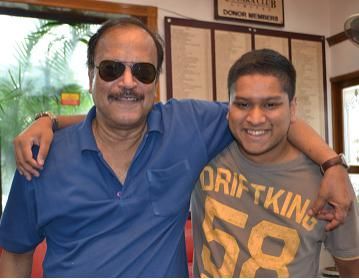
Mr. Salim Akbar with Professor Mohammad Abdul Jabbar's youngest grandson, Mr. Sebastian Haque
The young Professor was an active supporter of the freedom movements in Bangladesh. When he realised how excited his sons were, he understood he had to step in. He advised his sons, “If you want to join the freedom fight, just one of you will go. Your mother will not be able to bear it, if both of you go. Now you decide which one of you will stay with your mother and who will join the war.”
The young boys decided between themselves and told their father, the young Professor, in confidence. A few days later, when the young Professor was sat at the dinner table with his wife and children, he made the announcement. “Manik is going to join Khokan to fight in the liberation war. We must not fuss or cry about his decision.”
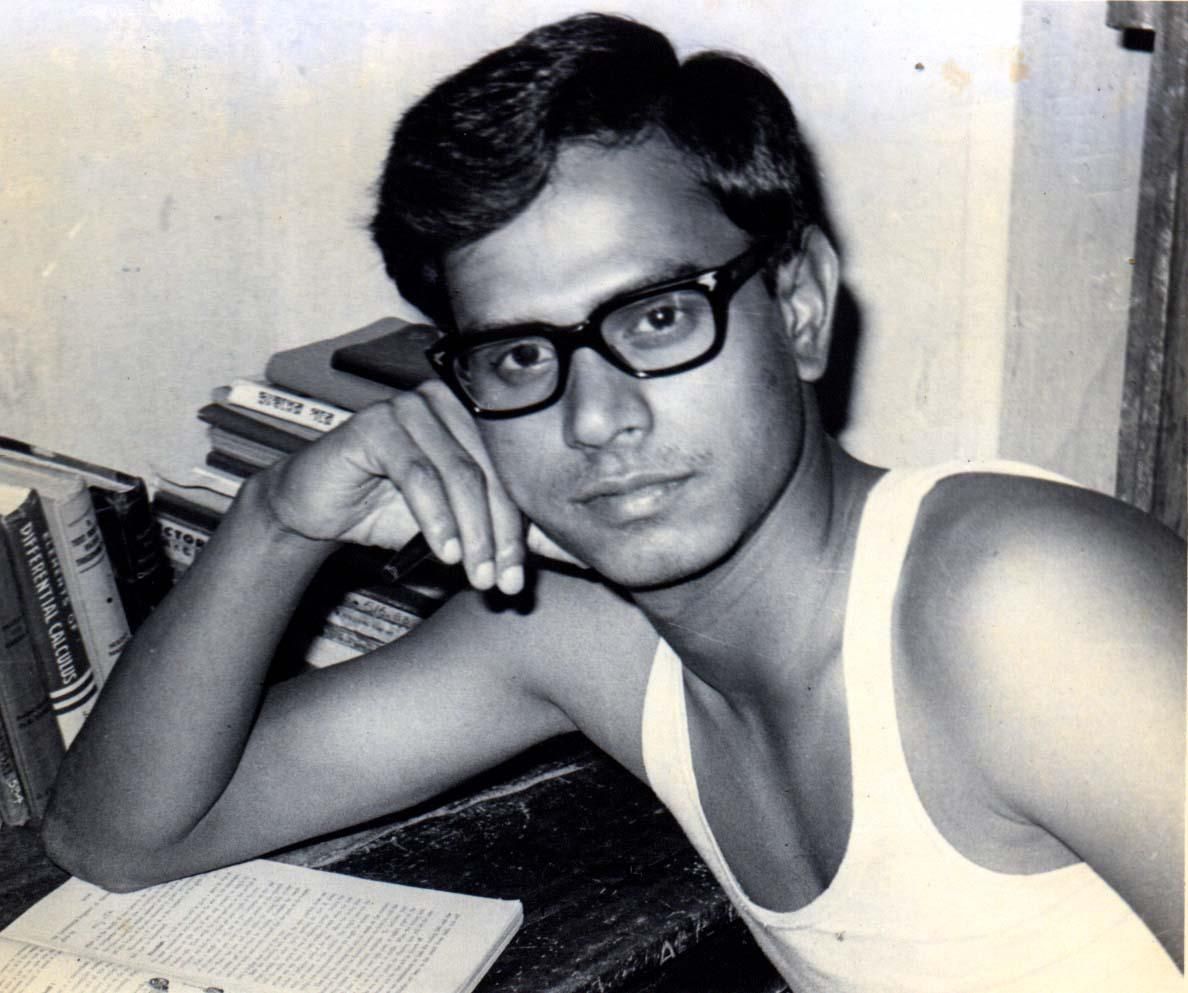
Mr. Manik Shafi, youngest son of Professor Mohammad Abdul Jabbar
Mr. Mohammad Shafi was the youngest son of Professor Mohammad Abdul Jabbar and Mrs. Noor Jahan Begum. As his mother, Mrs. Noor Jahan Begum was heartbroken. It was an enormous piece of news and the family knew that Mr. Mohammad Shafi was probably not going to return home from the war. Yet, the young Professor respected his son's decision and stood calm, steadfast, and accepting. Seeing this reaction, the rest of the family did not argue or question Mr. Mohammad Shafi's decision.
The next morning, the young Professor and Mrs. Noor Jahan Begum decided to send their youngest son off with a hearty home-cooked breakfast. Their second daughter-in-law, Mrs. Shirin Hossain Matin, also helped to cook this breakfast. It was to be a breakfast full of blessings and doyas.
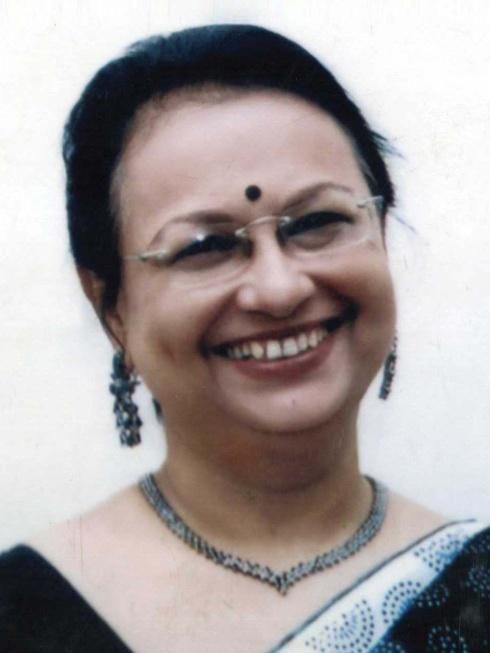
2nd Daughter-in-Law, Mrs. Shirin Hossain Matin
Mr. Mohammad Shafi, after obtaining all the doyas and blessings, left his home and family behind to join the liberation war. The war lasted nine months, which was very tough and worrying for the family – let alone what Mr. Manik Shafi had to experience and endure himself. The family remained strong and supported the call for Bangladesh's freedom – and Mr. Manik Shafi returned home 16 days after the war was won and Bangladesh was independent.
The family, including Professor Mohammad Abdul Jabbar, were very proud of Mr. Manik Shafi's efforts in the war and were even more happy that he had returned home safely.